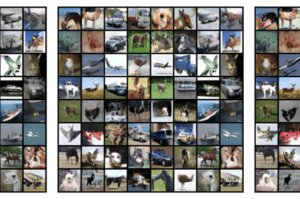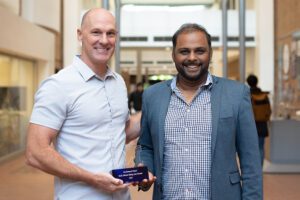The highly collaborative project will leverage many tiny sensing computers, called “motes,” to communicate with the visual cortex of the brain.


The highly collaborative project will leverage many tiny sensing computers, called “motes,” to communicate with the visual cortex of the brain.

Topics of accepted ECE NeurIPS papers include diffusion models, large language models, multi-armed bandit models, and more.

Doctoral student Matthew Raymond wants to facilitate the development of new and groundbreaking nanomedicines.

Doctoral student Can Yaras wants to reduce the carbon footprint of AI.

Accepted papers for the ICML conference span topics including deep representation learning, language model fine-tuning, generative modeling, and more.

Award-winning research led by Prof. Qing Qu discovered an intriguing phenomenon that diffusion models consistently produce nearly identical content starting from the same noise input, regardless of model architectures or training procedures.

Prof. Lei Ying leads a new MURI that is focused on the interplay between online and offline networks and how they could impact disruptive behavior and events.

Faisal, the 2023 ECE Rising Star Alumni Award recipient, founded Movellus based on his doctoral research conducted under Prof. David Wentzloff.

The semiconductor-compatible technology is a million times faster than existing electronics and could give us access to an entire new world of quantum phenomena.

This Q&A with award co-recipient Alfred Hero offers a glimpse into the emerging field of single photon imaging.